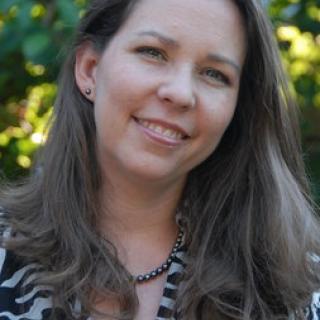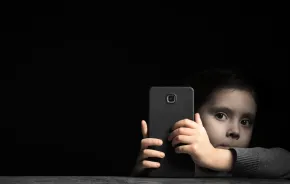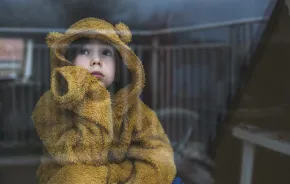
Melinda Johnson, owner of Seattle Kajukenbo and Kung Fu Kids in Seattle, is the executive director of Fight the Fear Campaign. Johnson holds both a sixth-degree black belt in kajukenbo (an eclectic martial art created in Hawaii) and a first-degree black belt in aikido. Fight the Fear is a community-oriented violence prevention initiative funded by local singer/songwriter Brandi Carlile’s Looking Out Foundation. Fight the Fear provides free training in basic self-defense skills to the community and access to resources for survivors of violence. The idea of free self-defense training for women was sparked by the 2009 murder of Teresa Butz in Seattle. Fight the Fear’s mission: “To make self-defense training easily accessible, because the skills and confidence it builds are a proven deterrent to violence.”
How did this campaign get started?
It was originally designed to be short-term: to focus on at-risk populations with open workshops in self-defense for two years. But Brandi’s fans wouldn’t let it go. They kept asking about Fight the Fear. So we relaunched in 2014 with a new focus: bringing self-defense to our youth. But we still do open community workshops and teach at senior centers.
What do you teach at workshops?
We teach based on the feminist empowerment model: awareness, use of voice, stand your ground, say no, set boundaries. Workshops last two–three hours, and we practice verbal skills, intuition, awareness, safety, exits and escape. We go through scenarios and examine different responses to situations. We do problem solving, and women help each other to find solutions in their own situations. Then we do physical fighting skills: hitting and kicking.
At the end of each class, we ask the participants a question: What did you learn? Then we tell them to go home and teach someone else.
Can you explain what you mean by “practicing intuition”?
What we practice is recognizing intuition. We talk about how you experience it, how it feels in your body, the difference between intuition, which is situational, and bias, which is general. Intuition
lives in an older, animal part of the brain that recognizes danger, even when our social constraints are telling us a different story than our body is. Intuition is when you hear that little voice saying, I don’t like that. This is creepy. I’m uncomfortable, and our social training chimes in with: Oh, it’s OK. You’re overreacting. When you hear that, you should ask yourself What is wrong? What am I actually feeling? Why am I shushing myself?
Can you explain what you mean by “use of voice”?
We talk about the power of your voice. Being willing to give voice to how you feel, communicating your desires, setting boundaries and being loud. And in an actual struggle, using your voice to yell can stop an assault.
I’m not training fighters. We’re talking about recognizing the signs of danger and taking steps to prevent escalation. Your own body has weapons; everybody’s does. It is about knowing how to release those weapons, and your power.
You are a martial arts expert. Do women need to be trained in martial arts to protect themselves?
No, because we’re not talking about taking on an army. I’m not training fighters. We’re talking about recognizing the signs of danger and taking steps to prevent escalation. Your own body has weapons; everybody’s does. It is about knowing how to release those weapons, and your power. The reason we do kicking and punching in class is to let women know that they do have physical power. Once they know they have that power, the less likely they are to need to use it.
You also give two-day workshops to “teach the teachers.” What is the Teach the Teacher Program?
Teachers self-select based on interest and passion to learn about the program. I’m not training professional self-defense teachers, but they are learning the basic model of empowerment and taking it back to their communities. That’s why we can do this in a weekend. And there is a whole support service for them. We offer to help them teach their first workshop, give them materials, etc. Our goal is to have two teachers trained in every school.
Fight the Fear offers workshops to many different groups. How do you change the workshops based on the participants?
Yes, we do workshops for the elderly, non-English speakers, deaf women, and even kids as young as fourth and fifth grade. That’s where the group problem solving comes in. My own experience may not be helpful to someone from a different culture, but women in their own circle can problem solve for particular situations together. For workshops with teen girls, we talk more about dating and sexual assault. Workshops are tailored to the population.
What is one thing you want kids to know?
Most assaults on children are by someone known to them, not a stranger. Predators will tell kids that they can’t tell their parents. Children need to learn that it is OK to say no to an adult, and that they can always tell you. If every kid could learn to stand up for themselves, how to recognize when someone is testing their boundaries and how to respond to keep themselves safe, then they would be better equipped to deal with the potential dangers in the world.











